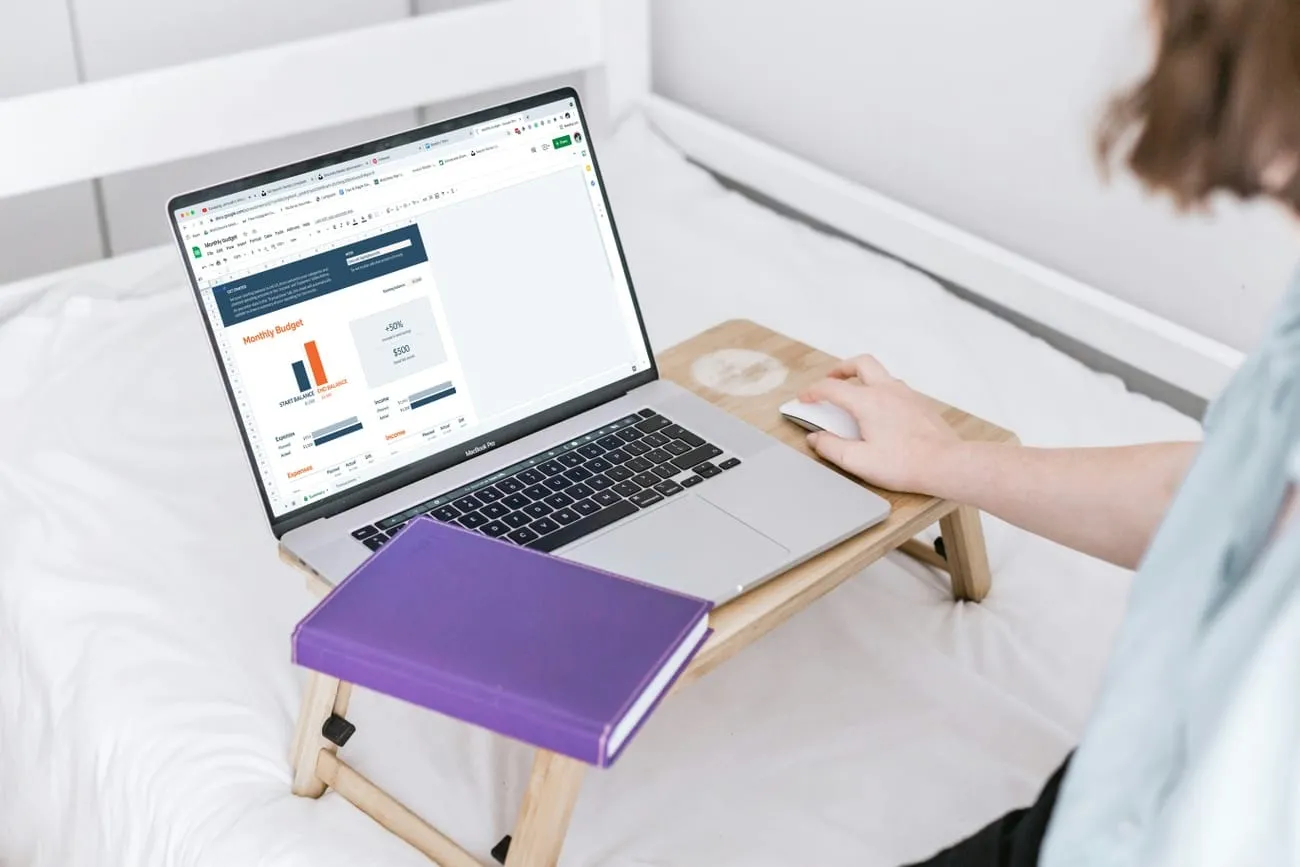Small Business Budgeting 101: Managing Finances for Long-Term Business Success

Here at Registry, we’re big believers in the importance of small business budgeting.
Not the kind you “do” periodically, dragging out your P&L spreadsheet to review how things are tracking. We’re talking about the active budgeting you should do from day one.
A budget is more than a financial document. It’s the backbone of any thriving business, big or small. It’s a living record that steers your business through turbulent times, informs forward-looking decisions, and guides you towards long-term goals.
Ultimately, it’s an indispensable window into your business and essential if you want to grow.
We’ve collected some practical small business budgeting tips to help you create, manage and optimise a budget that works for you.
The benefits of a well-built small business budget
Poor financial management is one of the top reasons small businesses in Australia fail. Crafting a realistic and flexible budget is essential if you want to avoid the same fate.
It’s not just about keeping your finances in check. It’s about setting a vision for the future and understanding the steps to take to get there.
Track income and expenses
From the cost of registering a business name to the impact of exchange rates on your supply chain, a well-crafted budget system tracks your finances from all angles.
Ideally, that happens in a centralised system like small business accounting software where you can analyse the data and generate useful reports.
Clarifying your financial inflow and outflow helps pinpoint where your money is going, ensuring every dollar works for your business.
Identify cost savings
A good budgeting system will help you identify opportunities to expand your profit margin.
Those could include negotiating better rates with suppliers, cancelling unused subscriptions, bundling business support services, or looking for vendors with more competitive pricing.
We’ll share tips on how to do that shortly, starting with categorising your expenses.
Make informed financial decisions
Clear, reliable data is vital for making good decisions. Financial records provide the context you need to plan and launch ideas, make strategic investments or avoid costly mistakes.
Although historical data can’t predict the future, it can help you analyse your current position, forecast revenue and expenses, and identify seasonal trends impacting resource requirements.
Work towards business goals
Aligning your financial strategy with your business objectives makes your big-picture goals more attainable. This comes down to asking the right questions.
For example, we know that a lot of Australians ask, “How much does it cost to register a business name?”
What they’re really asking is, “What’s the cost of starting a small business?”.
One question is operational and analytical. The other is aspirational, critical, and goal-oriented.
What kind of small business owner would you rather be?
How to create a small business budget in 6 steps
You don’t need to spend hours every day poring over P&L spreadsheets to take control of your finances. Building a budget that works for you means using tools, techniques and tracking systems that integrate into your workflow.
Here’s a step-by-step small business budgeting guide to get you started.
Track income and expenses
Get familiar with your business’s financial history. Centralise your income and expenses, going back as far as possible – to the cost of starting your small business if possible.
How: Consider using small business accounting software. They’re affordable and save you an incredible amount of time.
Set realistic goals
Review your business plan to identify one, two and ten-year growth goals. Translate these into concrete financial goals to guide your budgeting process.
How: Translate your business goals into short-term financial targets. For example, if your goal is to increase profit by 10% in the next 12 months, break that up into realistic stepping stones. Don’t forget to account for investments like additional marketing.
Categorise your expenses
Understanding your spending habits is key. Expenses typically fall into three categories:
- Fixed costs: These stay the same each month, like rent, salaries and insurance.
- Variable costs: These fluctuate with business activity, like inventory purchases, utilities and marketing campaigns.
- One-time expenses: These are unexpected costs that pop up occasionally, including major costs like equipment repairs or minor expenses like the cost to register a business name.
How: Review your bank statements or use accounting software to categorise each expense.
Estimate future income
Don’t just rely on past data to forecast your small business budget. Consider seasonal trends in your industry and project realistic income based on your sales pipeline and growth efforts.
How: Look for seasonal fluctuations or repeated trends in your financial history. If you’re just starting out, research the costs of starting a business in your industry so you know what to prepare for.
Expect the unexpected
Allocate a contingency fund to ensure you’re covered for unforeseen events. Hopefully, you’ll never need to access this rainy-day fund and your profits will be higher than expected.
How: Research the what-ifs and set aside the margin you think is necessary. More is always better, as anything left over can go towards growing your business.
Review and adjust
Did sales outperform expectations? Revisit your income projections. Did a new supplier offer better rates? Update your variable cost estimates. Small business budgets aren’t set in stone.
How: Review your budget at least monthly and adjust as needed to reflect any changes in your business activity or financial performance.
The bottom line on small business budgeting
Find the system that suits your style
Small business budgeting is essential for every entrepreneur, but everyone approaches it differently.
You’ll need to experiment and refine your budgeting system over time until the process, tools and systems work together to:
- Reduce the stress of managing your finances
- Save you time
- Identify cost-saving strategies
- Support business growth
- Streamline how you interact with suppliers and customers
Whether that means working with a financial advisor, balancing your own books with accounting software, or combining strategies depends on too many unique factors to list here.
What is universal, though, is the benefit of a flexible and realistic small business budget. As Australia’s small business partner, we’ve helped thousands of small business owners manage their finances better by bundling online business services like business name renewal and website hosting.


